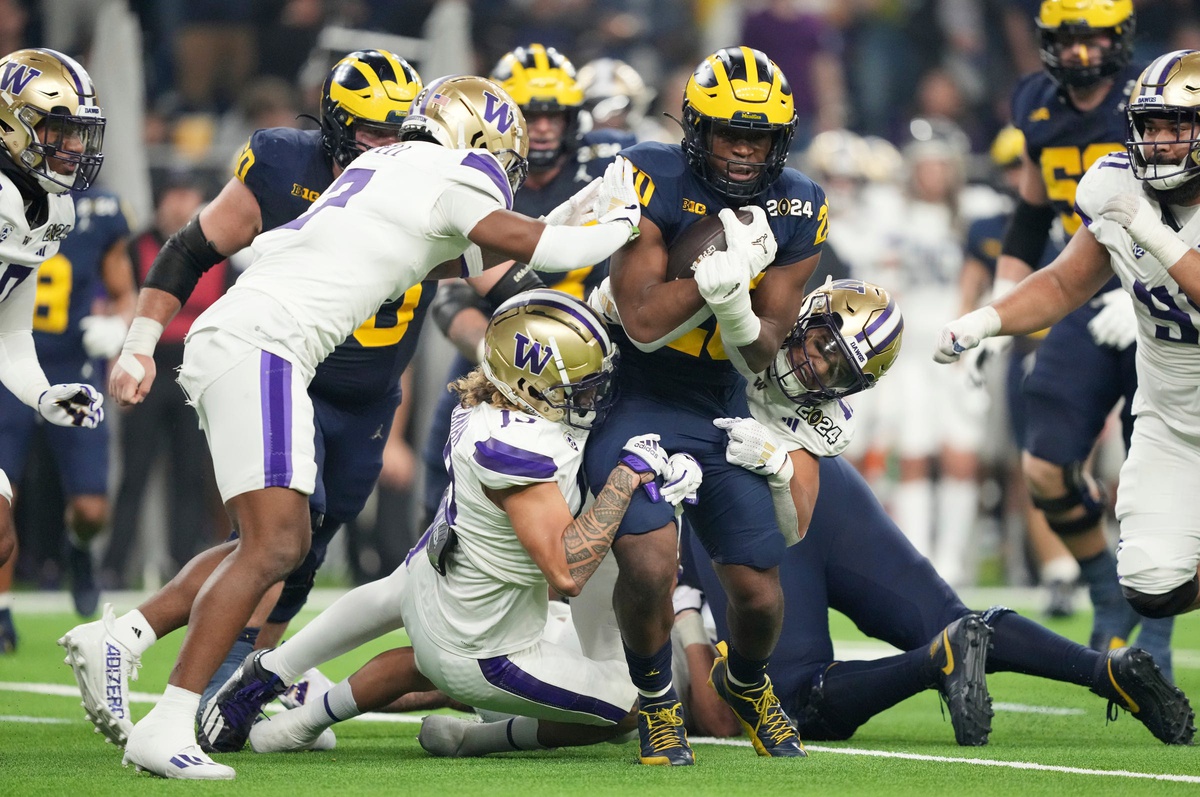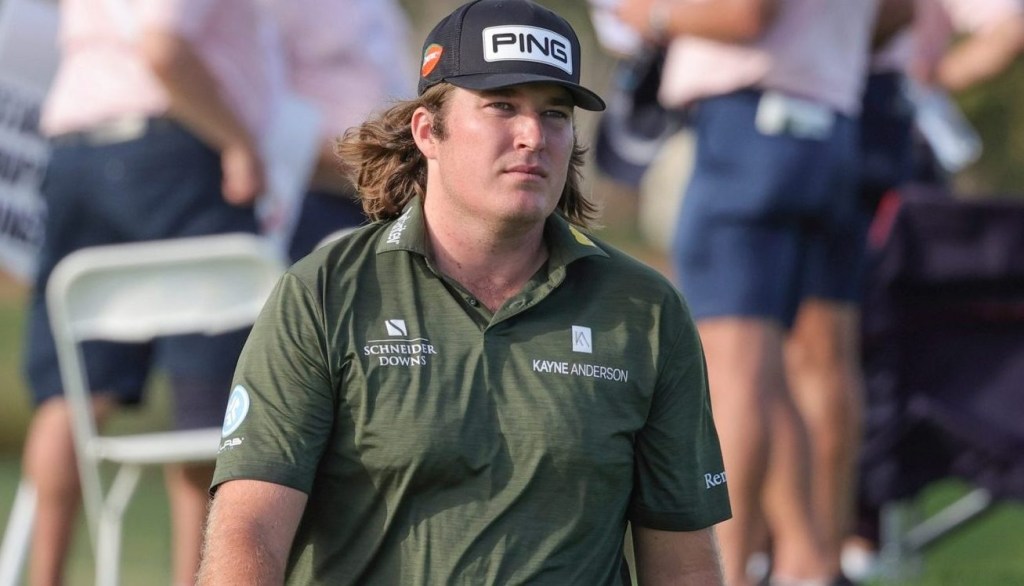The College Football Playoff hasn’t even seen its first expanded 12-team extravaganza, but that isn’t stopping conferences from looking ahead to the next CFP era.
On Friday, the nine FBS commissioners, as well as Notre Dame, agreed to solidify several details of Playoff expansion beginning in 2026 (when current contracts with ESPN and other New Year’s Six bowl games expire), executive director Bill Hancock said. The contract guarantees that at least 12 teams will make it into the playoff between 2026 and ’31, with the option to consider further expansion.
“We’re pleased to be in the position we’re in, while we know that there’s still more work to be done,” Hancock said.
The sport’s two super conferences have reportedly strong-armed the rest of the leagues into allowing them to get a much larger portion of CFP revenue than they currently collect. As of now, all Power conferences split 80% of playoff revenue equally, with Group of 5 conferences taking the rest. But starting in 2026, the SEC and Big Ten will each take 29% of the pot for themselves, the reports said. Group of 5 schools will earn between 9% and 10%. (Hancock declined to comment on revenue distribution terms.)
The new playoff contract also allows for further expansion, likely to the 14-team model that has been discussed in recent weeks. It’s unclear what the bid structure would look like in that format. Hancock emphasized that there is no “urgency” among administrators to finalize a decision about expansion to 14 teams, pointing out that some have suggested waiting to see how the inaugural 12-team slate plays out.
The media rights renewal with ESPN has not been finalized, however, and Hancock said there was no specific timetable for those details to be ironed out. Reports have suggested that in a new deal ESPN would pay out roughly $1.3 billion per year in a six-year, exclusive package. ESPN would hold the right to reevaluate the contract in 2028 if a 14-team model is implemented, as well as if conferences engage in further realignment.
The agreement would mark ESPN’s victory over rival Fox for control of top-shelf college football rights. At one time, it was expected that multiple networks would share in the CFP, and everyone from Amazon to Warner Bros. Discovery has expressed interest over the past several months. Another network could still procure playoff rights through a sub-licensing deal with ESPN, though the network will clearly keep the later-round games and championship for itself.
Hancock on Friday confirmed that the next two years of the playoff are guaranteed to stay at 12 teams. The upcoming two postseasons will look something like this: Five of the top-ranked conference champions will receive bids, guaranteeing at least one Group of 5 participant. The other seven spots will go to at-large teams. (Washington State and Oregon State, the lone members of the new Pac-12, will only be able to qualify for at-large bids.) Revenue distribution will remain similar to the current model, though it will be based on school rather than conference so that larger conferences don’t have to split the same amount of money among more schools. ESPN will broadcast the first round of the playoff, which will consist of four on-campus games.







![[Subscription Customers Only] Jun 15, 2025; Seattle, Washington, USA; Botafogo owner John Textor inside the stadium before the match during a group stage match of the 2025 FIFA Club World Cup at Lumen Field.](https://frontofficesports.com/wp-content/uploads/2026/02/USATSI_26465842_168416386_lowres-scaled.jpg?quality=100&w=1024)
![[Subscription Customers Only] Jul 13, 2025; East Rutherford, New Jersey, USA; Chelsea FC midfielder Cole Palmer (10) celebrates winning the final of the 2025 FIFA Club World Cup at MetLife Stadium](https://frontofficesports.com/wp-content/uploads/2026/02/USATSI_26636703-scaled-e1770932227605.jpg?quality=100&w=1024)








